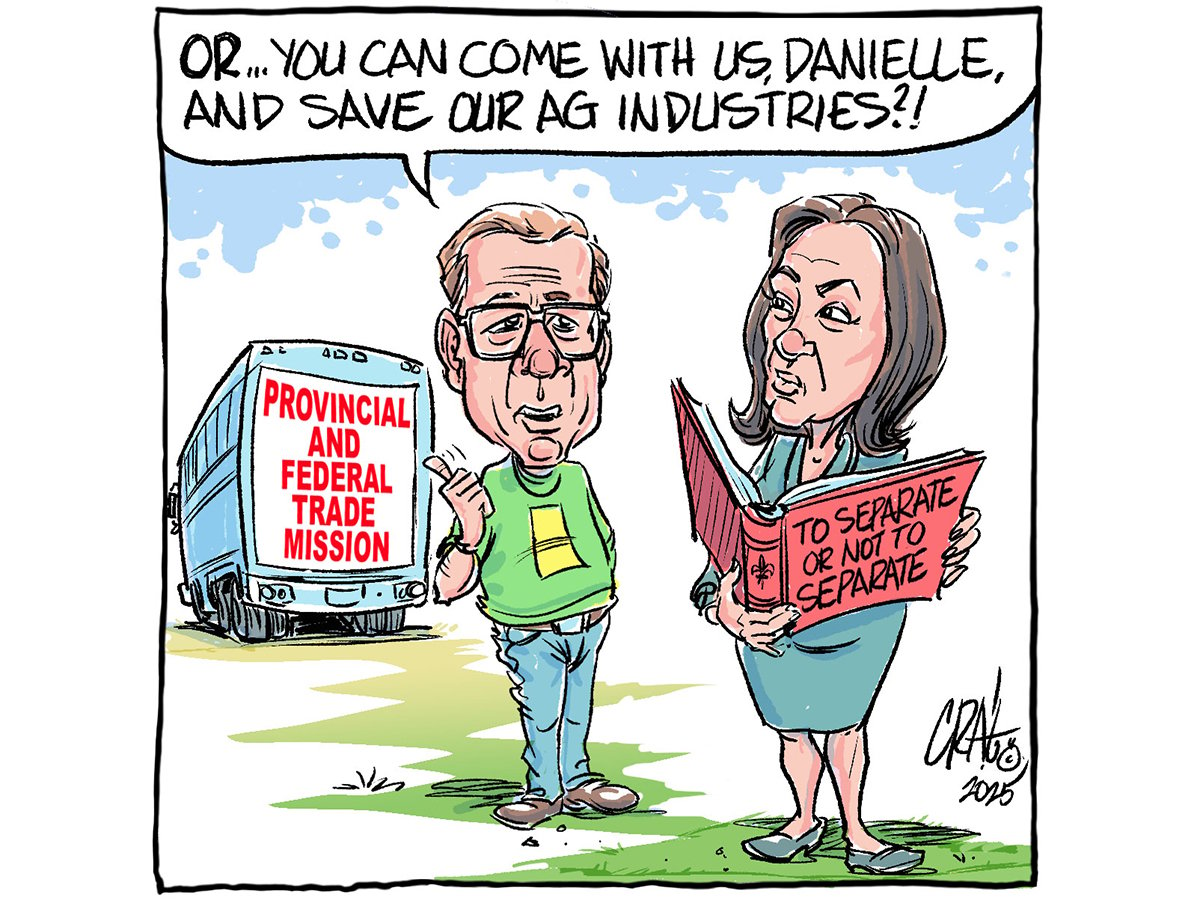Thawing relations between the Saskatchewan and federal governments is occurring at a pivotal time for farmers.
At the start of this year, the idea of Premier Scott Moe and a federal Liberal government seemingly working together in lockstep on anything would have been fanciful.
During a visit to The Western Producer’s booth during Ag in Motion, the premier said he was unable to find a credible landing spot on numerous policies with Ottawa over the past decade due to his challenging relationship with Trudeau.
Read Also

Budget seen as fairly solid, but worrying cracks appear
The reaction from the agriculture industry to prime minister Mark Carney’s first budget handed down November 4th has been largely positive.
That has changed. The premier also said during his visit that he gives Prime Minister Mark Carney credit for the engagement that he and his ministers have undertaken when it comes to the trading relationship with China.
And this was before the meeting held in Saskatoon a few weeks ago to discuss ongoing challenges with China including the new 75 per cent tariff on Canadian canola seed, as well as trade with the United States.
Premier Moe, along with provincial Trade and Export Development Minister Warren Kaeding and Agriculture Minister Daryl Harrison, met with Agriculture Minister Heath MacDonald and Kody Blois, parliamentary secretary to the prime minister.
There was also a long list of industry organizations at the meeting, including multiple grower groups.
This is exactly the kind of meaningful engagement with all levels of governments and stakeholders that we should expect representatives to have.
International trade is very complicated right now, and many of the assumptions that underpinned the strategies Canadian exporters relied on may need to be re-evaluated and replaced.
This is tiresome work, and it won’t be a straightforward endeavour.
It will take a sophisticated approach to managing the relationship with an unpredictable U.S. president, while trying to maintain and improve our footholds in other markets.
This is not a time for simplistic slogans or divisive politics, which are often used by politicians that are either out of their depth or too lazy to put the effort in to make meaningful progress in a collaborative environment.
Premier Moe’s September trip to China for talks on persuading Beijing to drop its new tariffs on canola, is taking place with support from the federal government.
This is a far different approach compared to how he has participated in Saskatchewan trade missions in the past, without support from the feds.
This is also far different compared to Alberta Premier Daniel Smith’s approach to Canada’s trading relationship with the U.S.
The bad blood between the premiers of Saskatchewan and Alberta and the federal government is a weakness that other countries, especially the U.S., can and will exploit.
It is encouraging that Premier Moe has found a federal government that he can collaborate with on issues critical to the farmers he represents.
It would be helpful if Premier Smith would take a bit of time off from flirting with separatists and join the gang that is trying to keep Canadian agricultural exports flowing.
There are few benefits of being a little dog in a dog-eat-dog environment that international relations are trending towards.
This doesn’t mean premiers shouldn’t stand up for the needs of their constituents against federal policies, but when Canadians stand together, we are a force to be reckoned with.
Karen Briere, Bruce Dyck, Robin Booker, Paul Yanko and Laura Rance collaborate in the writing of Western Producer editorials.















